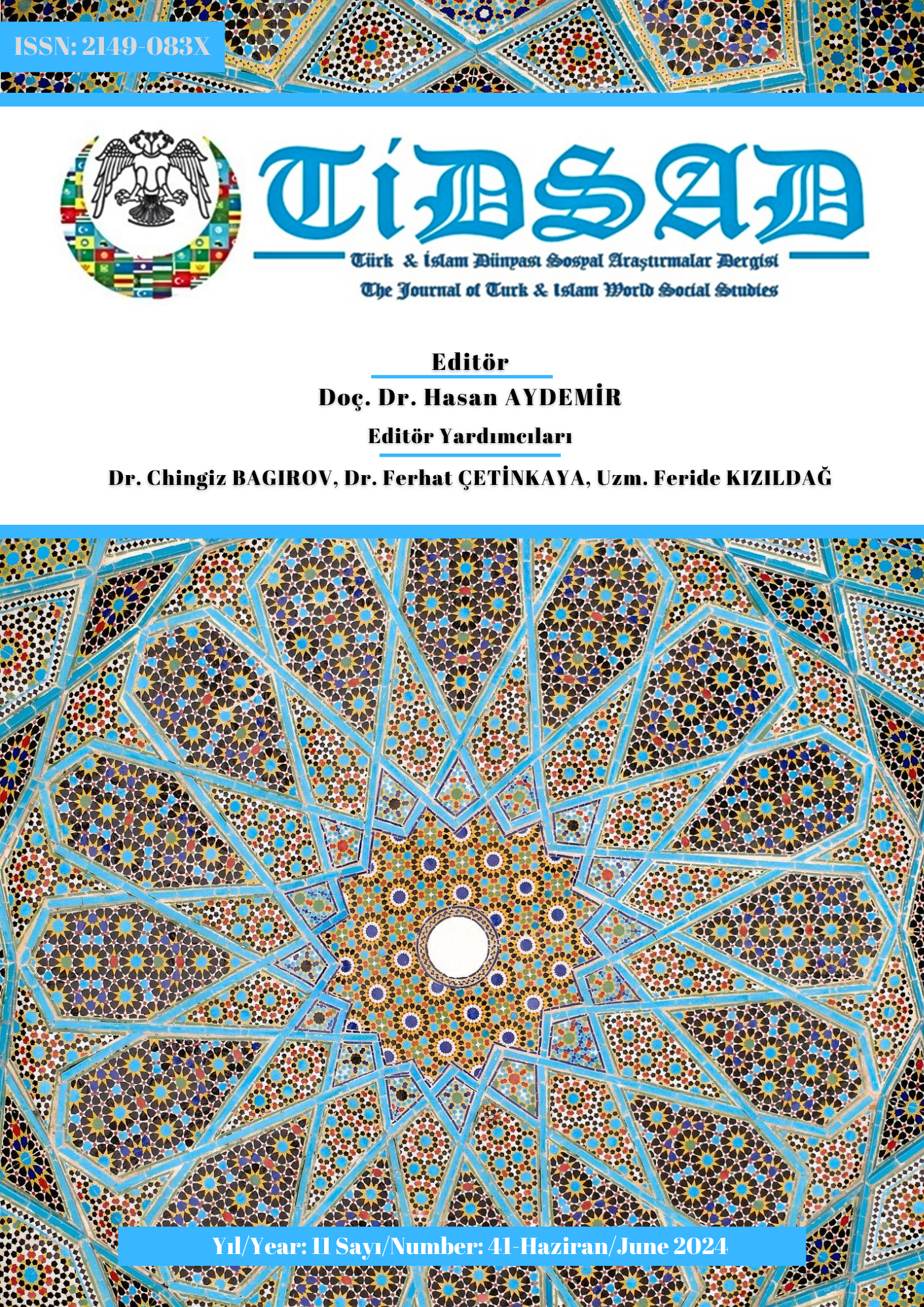Author :
Abstract
İnsan kendi kendine yetersiz olup, ihtiyaçlarını kendi başına karşılaması çok zor olduğundan tek başına hayatını sürdüremeyen, toplum halinde yaşama ihtiyacı duyan bir varlıktır. Bu sebeple tek başına sağlıklı bir hayatı yürütebilmesi mümkün görünmemektedir. İnsanların pek çok ihtiyacı olup bu ihtiyaçların fert olarak görülebilmesi normal şartlarda mümkün değildir. O halde insanın toplum içinde yaşayarak diğer insanlardan destek alması söz konusu olmaktadır. Bu durumda toplum içinde herkes kabiliyetine göre başarılı olduğu bir alanda uzmanlaşarak üretime iştirak eder ve diğer insanlara faydalı olur. Böylece herkes toplum içinde ihtiyaç duyulan farklı bir alanda çalışarak bir şeyler üretir. Bu değer ve ürünlerin karşılıklı paylaşılması ve değiştirilmesi neticesinde daha rahat, daha müreffeh bir hayat sürme imkanına kavuşulur. Üretilen değer ve ürünlerin kişinin ihtiyacı olan diğer ürünlerle değiştirilmesi, insanlar arasında bir alışverişin ortaya çıkmasına neden olur. Bu değer ve ürünlerin geniş topluluklar tarafından değişimi ve karşılıklı alışverişi ise piyasaların oluşmasına ve bir eko-sistemin doğmasına zemin hazırlar. Bu çerçevede kendi ihtiyaçlarını karşılama bakımından sıkıntı çeken kimselerin desteklenmesi ve ihtiyaçlarının görülmesi önem arz etmektedir. Zekât burada önemli bir vazifeyi yerine getirir, nakit ve emtianın toplumda maddî açıdan farklı sosyal tabakaları oluşturan kişiler arasında intikalini sağlayarak ekonomide bir canlılığın doğmasına aracılık eder. Bu çalışmada zekâtın sosyo-ekonomik boyutu üzerinde durularak onun farklı yönleri ortaya konulmaya çalışılacaktır. Bu tespitler yapılırken bir yandan zekâtla ilgili temel meseleler için Kur’ân-ı Kerîm, hadisler ve temel klasik kaynaklardan istifade edilecek, diğer yandan bu hususun sosyo- ekonomik gerekleri mümkün olduğunca göz önünde bulundurularak, mesele izah edilmeye çalışılacaktır.
Keywords
Abstract
Human beings are self-sufficient and cannot survive on their own because it is very difficult for them to meet their needs on their own, and they need to live in a community. For this reason, it does not seem possible to lead a healthy life alone. Humans have many needs and it is normally not possible to fulfill these needs as an individual. Therefore, it is necessary for human beings to live in society and receive support from other people. In this case, everyone in society specializes in a field in which they are successful according to their abilities, participates in production and is beneficial to other people. Thus, everyone produces something by working in a different field that is needed in society. As a result of the mutual sharing and exchange of these values and products, it is possible to lead a better and more prosperous life. The exchange of produced values and products with other products that one needs leads to an exchange between people. The exchange and mutual exchange of these values and products by large communities paves the way for the formation of markets and the emergence of an eco-system. In this context, it is important to support those who have difficulties in meeting their own needs and to meet their needs. Zakat fulfills an important task here, and mediates the emergence of a vitality in the economy by enabling the transfer of cash and commodities between the people who constitute different social strata in society in material terms. This study will focus on the socio-economic dimension of zakat and try to reveal its different aspects. While making these determinations, on the one hand, the Qur'an, hadiths and basic classical sources will be utilized for the basic issues related to zakat, on the other hand, the socio-economic requirements of this issue will be taken into consideration as much as possible and the issue will be tried to be explained.





